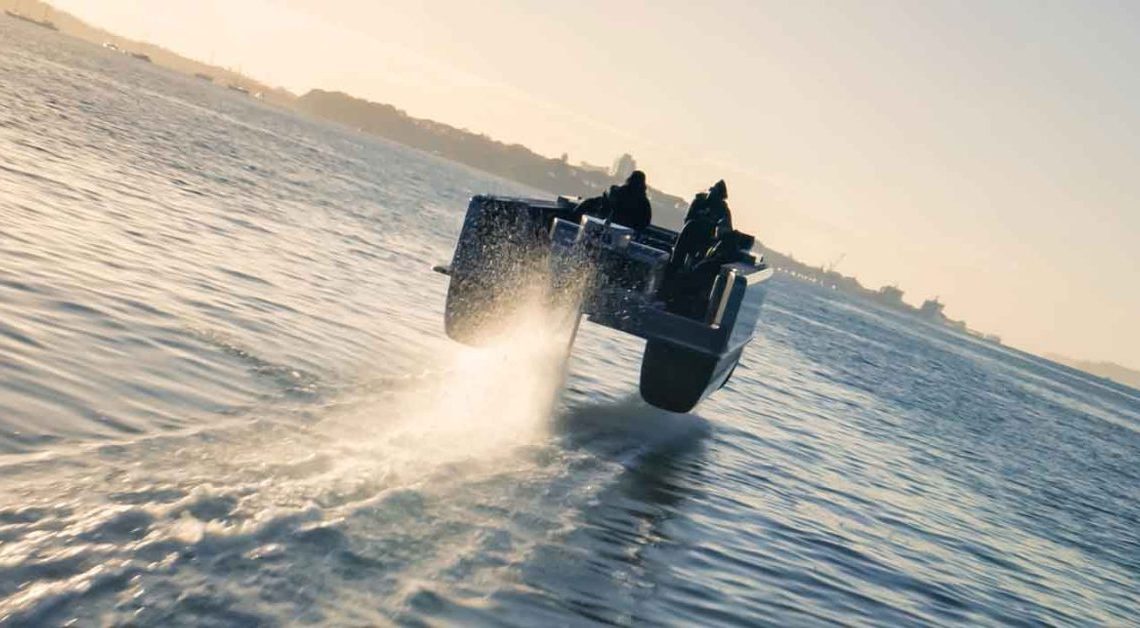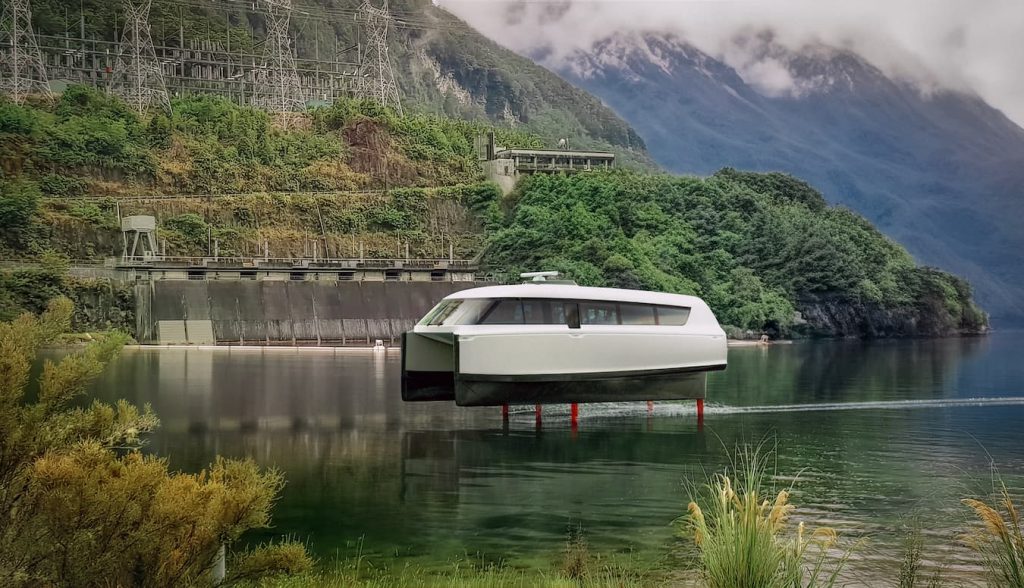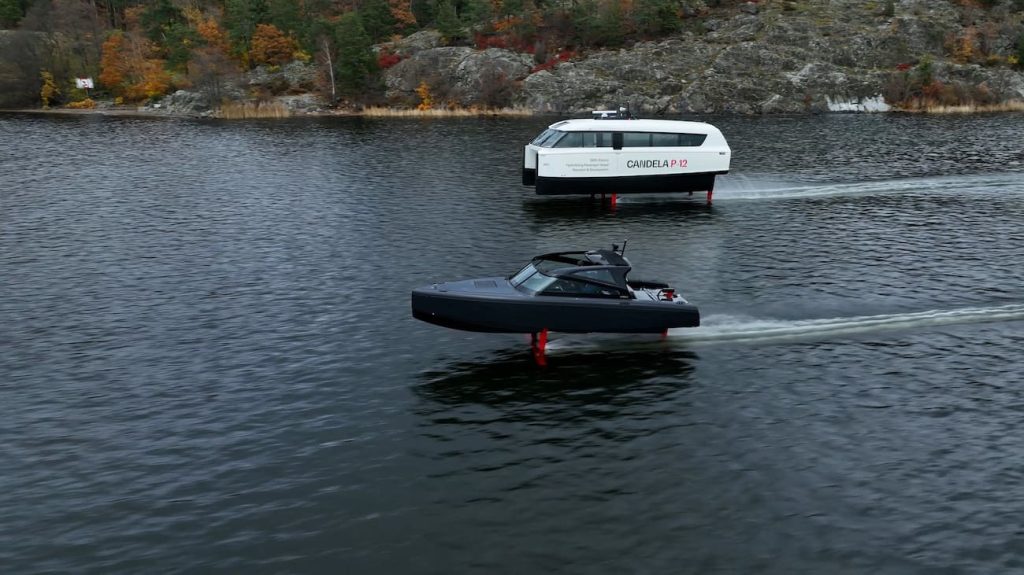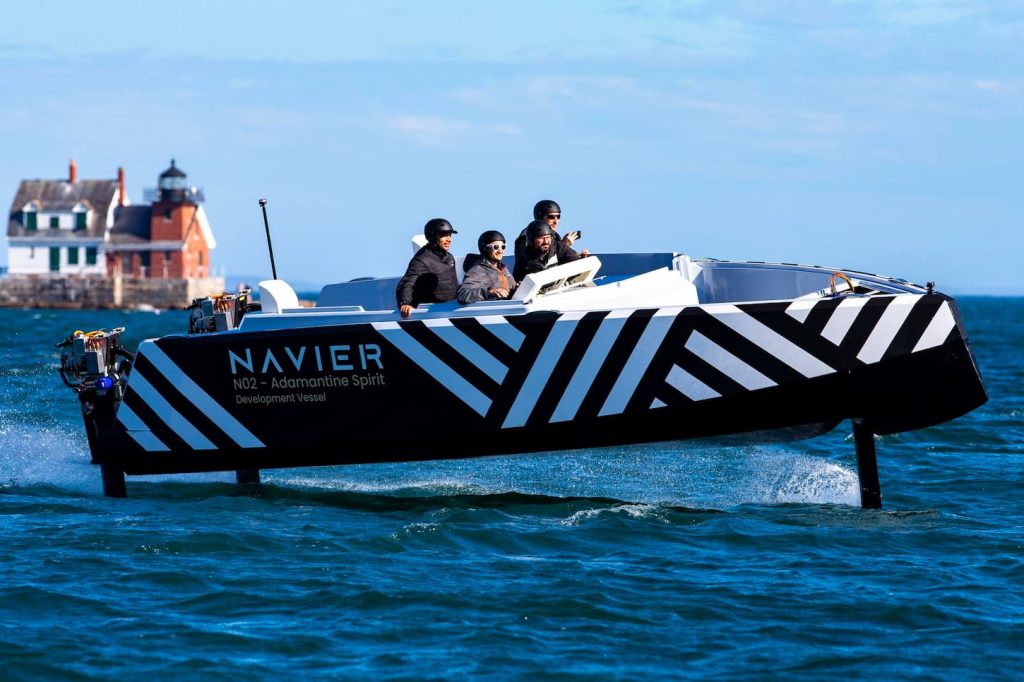
As electric boats slowly gain market share among recreational boaters, a different breed of silent, efficient speed boats is now targetting commuters. Hydrofoil electric ferries are coming to a river or lake near you, and multiple companies are working to make it happen.
I’ve had the pleasure of covering electric boats for years, where I’ve seen just about everything the nascent industry has to offer. But it’s the hydrofoil electric boats that are making the biggest departure from the norm.
Compared to traditional V-hull or catamaran vessels routinely used as ferries, hydrofoil boats use significantly less energy to travel the same distance on the water. Hydrofoils, which work like an airplane’s wing placed underwater, lift the entire boat’s hull into the air. With significantly lower resistance, the boat essentially flies while using as little as 20% of the same energy required by a planning boat.

Hydrofoil boats have been around for decades, but more recent advances have replaced older internal combustion engines with electric motors, taking these boats to the next level.
The biggest name in the game is undoubtedly Stockholm-based Candela, which first sailed its prototype hydrofoil electric boat back in 2016 and has been in production since 2018. The company began with multiple models of electric speedboats for recreational boating. Now, its newest model, the Candela P-12, is going commercial for use as a ferry in rivers, lakes, and archipelagos like around its home waters in Stockholm.
The P-12 has been undergoing water trials since last year, ahead of its first commercial operations.
One of its first operators will employ it on the world’s cleanest lake, Lake Manapōuri in New Zealand, where it is expected to replace 240 tons of CO2 emissions each year by replacing combustion engine boats.

While Candela undoubtedly leads the industry, other hydrofoil electric boats have cropped up in the last couple years. Vessev, an Auckland, New Zealand-based startup, has just announced the successful completion of two weeks of intensive water testing for its VS-9 electric hydrofoil ferry.
“We have been pushing the VS—9 less than two weeks after its first flight and she has been ticking all the boxes and more,” announced Vessev CEO Eric Laakmann earlier today. “On some of our test sessions, we had 25 knots gusting 35 with wind waves to match and she was cruising over the waves.
According to the company, which released the video below, the testing occurred in sea states featuring chop and waves averaging around 75 cm (2’6″) and peaking at 100 cm (3’3″).
The VS-9 is designed to transport up to nine passengers, though Vessev claims to be developing a much larger 100-passenger hydrofoil ferry for larger operators.
San Francisco, California-based electric boat startup Navier also plans to target the commercial ferry market with its first model.
Debuted in 2023, the Navier N30 announced its first official pilot program earlier this year. The hydrofoiling electric boat was said to be partnering with payment platform Stripe to ferry its employees from San Francisco’s outskirts to the downtown area.
The plan would showcase how the normally one-hour drive could be transformed into a much more efficient half-hour ferry ride on a hydrofoil electric ferry.

Electrek’s Take
I’ve test-driven a few hydrofoil electric boats, and I’ve always been amazed by how easy they are to operate and how smooth the ride is.
On Candela’s electric boats, I’ve been able to cut right across the wakes left by cruise ships while feeling barely a ripple.
Ferries can replace a significant number of cars in waterside cities, but making the experience more pleasant and efficient is key to getting more drivers out of their cars. With hydrofoil electric boats, not only do the journeys use significantly less energy, but they’re also smoother and more enjoyable. I’ll admit to being prone to seasickness, yet I’ve never gotten even a tad bit queasy on a hydrofoil electric boat.
Check out one of my last hydrofoil electric boat test drives below, where I took the Candela C-8 for a spin around Stockholm.
Author: Micah Toll
Source: Electrek



